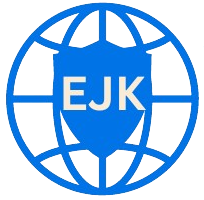
Hiring a web developer is a big step in growing your business online. Whether you’re building your first website or revamping an existing one, being properly prepared can save time, reduce costs and lead to a much better final result. Before diving into the design and development stages, it’s worth taking the time to gather your thoughts, organise your assets and get clear on your goals. This preparation phase can make all the difference when working with a web developer.
In this article, we’ll walk through what you should have ready before the project begins, so you can make the most of your investment and avoid common pitfalls.
Table of Contents
ToggleWhy Preparation Matters When Hiring a Web Developer
One of the biggest misconceptions about hiring a web developer is the idea that they’ll take care of everything. While a good developer will guide you through the process, your input is essential. The more prepared you are, the smoother the collaboration will be.
Planning ahead also helps ensure your new site reflects your business goals, serves your customers effectively and stays on schedule. Without proper preparation, the project can stall or become more expensive than expected.
Clarify Your Website Goals
Before anything else, define what you want your website to achieve. Are you looking to generate leads, sell products, showcase your portfolio or support existing customers?
Understanding your website goals will help your developer build a solution that fits your business. It also makes decision-making easier throughout the process, from choosing the right platform to structuring your content.
Ask yourself:
What’s the primary purpose of the site?
Who is the target audience?
What action do you want visitors to take?
These answers will form the foundation of your project.
Create a Website Planning Checklist
A website project has many moving parts. Creating a simple website planning checklist can help you stay organised and reduce overwhelm. Your checklist might include:
Domain and hosting details
Brand guidelines or logo files
Page list (sitemap)
Initial content draft
Reference sites you like
Contact forms or call-to-action ideas
Legal policies (like privacy or cookie notices)
You don’t need everything perfect from day one, but a clear outline helps your developer understand the scope and prevents surprises later.
Write a Clear Web Design Brief
A strong web design brief makes it easier for your developer to quote accurately and deliver a website that meets your expectations. It doesn’t need to be complicated. Aim to cover:
Your business background and what you do
The purpose of the website
Key features or integrations (like booking systems or e-commerce)
Pages required
Any deadlines or launch dates
Budget range
The clearer your brief, the more efficient your project will be. It also helps avoid miscommunication, which can slow things down or lead to extra costs.
Plan Your Website Content Early
Content is often the biggest bottleneck in a website project. Start your website content planning early, even before design begins. Think about:
Headlines and page copy
Service descriptions
Team bios or company story
Product details if you’re selling online
Testimonials or case studies
Blog posts or FAQs
If writing isn’t your strength, consider hiring a professional. Good content not only supports your SEO but also helps visitors take action. It’s just as important as the visual design.
Gather Your Website Assets
Website assets are all the visual and functional elements your developer will need. This might include:
Logo files (preferably in vector format)
Brand colours and fonts
Photos and illustrations
Videos
Icons
Downloadable PDFs or brochures
Any third-party tools (e.g. booking forms, live chat, email marketing)
Try to provide high-quality files and avoid screenshots or low-resolution images where possible. If you don’t have brand guidelines or a visual identity yet, mention this early in your brief so it can be included in the scope.
Understand Your Audience
Your website should speak directly to your ideal customers. Before your developer starts work, take time to consider:
Who your audience is
What problems they’re trying to solve
How your business helps them
What language or tone will resonate with them
Sharing this insight helps your developer design a site that’s not just attractive, but genuinely effective.
Prepare for Ongoing Collaboration
Hiring a web developer isn’t just a one-off transaction, it’s a collaboration. Be ready to provide feedback, answer questions and make decisions along the way. Clear communication and realistic timelines keep things moving smoothly.
You may also want to think ahead to how the site will be maintained. Will you update it yourself, or will you need ongoing support? Discuss this early on to avoid issues after launch.
Common Mistakes to Avoid
It’s easy to fall into certain traps when preparing for a website project. Here are a few to watch out for:
Waiting until the last minute to think about content
Not having clear goals or expectations
Forgetting about mobile users or accessibility
Assuming your developer handles everything, including copywriting or marketing
Changing direction halfway through the project without discussing the impact
By preparing properly and staying engaged throughout, you’ll avoid most of these issues.
Conclusion:
Hiring a web developer is an investment in your business. The better prepared you are, the more value you’ll get from that investment. From setting goals to planning your content and gathering assets, a bit of groundwork can lead to a faster, smoother and more successful project.
Take the time to clarify your needs, communicate clearly and provide the tools your developer needs to do their best work. A well-prepared client makes for a better website, and ultimately, better results for your business.
If you have any questions or want to have a chat about your website needs, book a call with us, will be happy to help!
